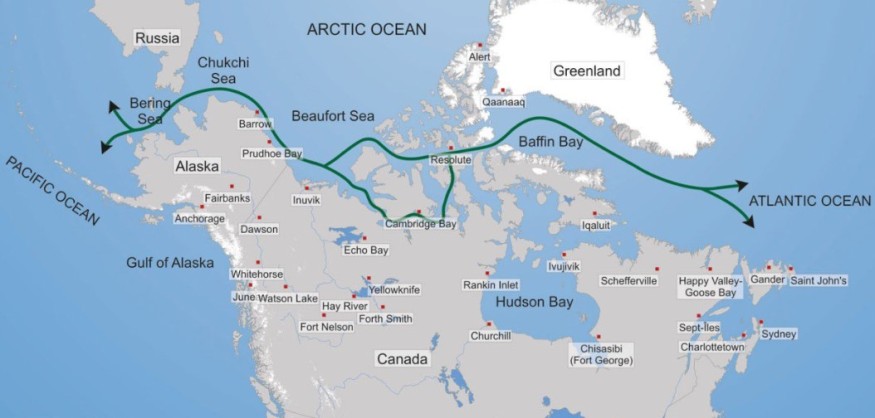
The Northwest Passage (NWP), a fabled Arctic route long sought as a global shipping shortcut, is now revealing the complex and often unpredictable impacts of climate change.
While warmer temperatures have melted portions of the sea ice, making parts of the passage navigable, new challenges have emerged, complicating its use as a reliable shipping route.
Northwest Passage Faces Setbacks as Multi-Year Ice Creates New Choke Points
Between 2007 and 2021, surveys have shown surprising shifts in the ice dynamics along the NWP. Some areas, like the eastern Beaufort Sea, have seen their navigable seasons shortened by up to 14 weeks. Similarly, key regions such as M'Clure Strait and Viscount Melville Sound are now facing reductions of five weeks or more in navigable time.
According to EcoNews, these changes stem from the southward movement of thick, multi-year ice (MYI) from the Arctic Ocean into the Canadian Arctic Archipelago (CAA), creating "choke points" that hinder shipping activity.
For centuries, explorers and commercial interests have dreamed of using the NWP to save thousands of miles of travel between major ports. Yet, the reality today is far from straightforward.
While some southern portions of the passage, such as the west Beaufort Sea and Amundsen Gulf, have seen slightly longer shipping seasons, the northern route is increasingly obstructed by unpredictable ice conditions. This variability limits the route's reliability and safety for global shipping.
Arctic Ice Changes Pose Growing Risks to Medium-Class PC7 Ships in NWP Operations
The movement of MYI poses significant risks even to ice-strengthened vessels, such as medium-class PC7 ships often used in Arctic operations. Thicker ice is more challenging to navigate, increasing the likelihood of vessel damage and higher insurance costs.
For smaller ships or those without specialized icebreaking capabilities, the hazards are even greater.
Beyond its impact on shipping, the changing Arctic ice dynamics affect local communities that depend on the region for transportation and resources. Shortened shipping seasons could disrupt the delivery of food and essential supplies, worsening food security and raising the cost of living for coastal Arctic populations.
Despite these challenges, the NWP retains economic significance, particularly for countries like Canada and the United States, Britanica reported. The route has the potential to cut the distance between London and Tokyo by nearly half compared to traditional routes.
However, using the passage for commercial purposes will require substantial investment in infrastructure, improved navigation technology, and cooperation among governments, businesses, and local communities.
© 2025 NatureWorldNews.com All rights reserved. Do not reproduce without permission.





